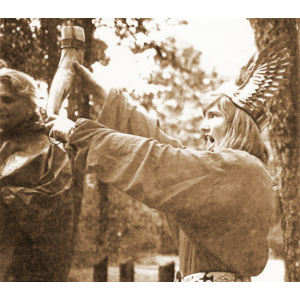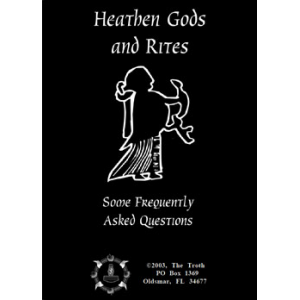 In the modern Western countries, religion is largely an individual matter. People meditate or pray, seek self-improvement, search for personal spiritual enlightenment, or find individual salvation. Religion is only a set of beliefs and practices, which can be chosen by the seeker as easily as we buy a new car - and changed for a new one even more easily.
In the modern Western countries, religion is largely an individual matter. People meditate or pray, seek self-improvement, search for personal spiritual enlightenment, or find individual salvation. Religion is only a set of beliefs and practices, which can be chosen by the seeker as easily as we buy a new car - and changed for a new one even more easily.
This is a very new notion, one that has risen in direct proportion to our separation from nature and from our ancestors. To people in traditional cultures, this self-centered Interpretation of religion is strange indeed.
Certainly all spiritual or religious paths have an individual component that is valid and worthy of pursuit. In America and the rest of the West, however, we often focus on the individual to the exclusion of the group aspect. This doesn't mean that we don't yearn after community; many neighborhood churches provide this for their members, and this role as a provider of community has become even more vital as our families disintegrate under the pressures of modern living.
What Westerners do not understand is that folk religions - native religions, indigenous religions, whatever you want to call them - are linked to a particular cultural and biological group...a people. Religion is not something apart from the life of the group; indeed, it is one more manifestation of the group's existence. Religion springs from the very nature of the people and is an expression of the totality of their experience from the beginning of time.
Folk religions are deeply ancestral. Those who have gone before, those forefathers and foremothers of times past, are still connected to the tribe or nation. The bonds of kinship transcend space and time. Indeed, many of us who follow Asatru believe that the ancestors are continually reborn into the family or clan. There is an interweaving of ancestry throughout lifetimes and across generations. We have been here, together in this world, before. Blood is not only thicker than water, it is stronger than death and distance!
From this Perspective, it is unthinkable that religion should be seen as just an accessory, something to be shucked off like a coat or a hat. Rather, religion becomes a manifestation of our very essence, a part of us like our legs or our head. Asatru is not what we believe, it is what we are.
It is only natural that we seek out the Spiritual Path that our ancestors walked. On the most mundane level, we are more like those forebears than we are like anyone else. We carry their essence. One can try to rationalize this by pointing out that so many things about humans are influenced by heredity, and perhaps that is part of it, but ultimately the connection is spiritual. We are linked to those ancestors and to our descendants by special bonds that we do not share with others. When we find the ways of our own people, we discover things we cannot find anywhere else.
It is these two factors - the focus on the group nature of religion as a counterbalance to the individual aspect, and the importance of the ancestors, that set folk religions apart from modern, rootless, artificial constructs.
Asatru is not just a belief or a set of practices, it is an expression of who we are as men and women of European heritage.
Books in PDF format to read:
John Dee - The Practice Of Enochian EvocationSir James George Frazer - The Golden Bough A Study Of Magic And Religion
Captain William Morgan - The Mysteries Of Freemasonry
Israel Regardie - The Art Of True Healing
Robert Ellwood - The Encyclopedia Of World Religions


